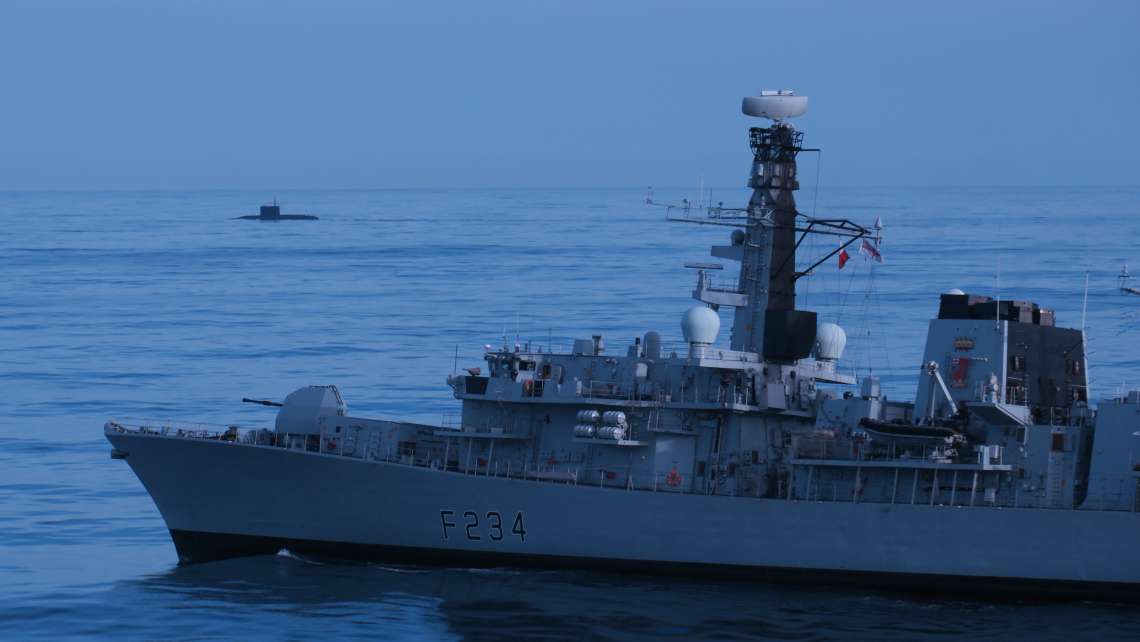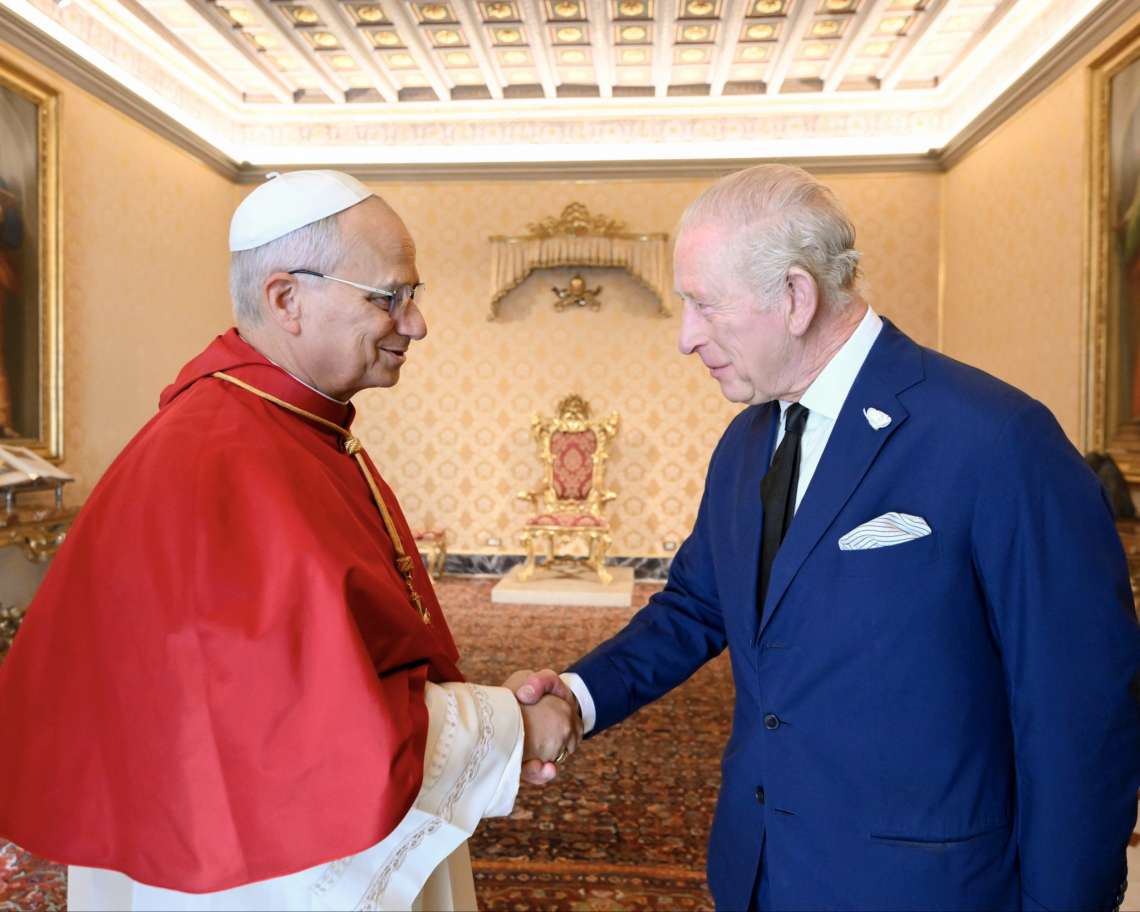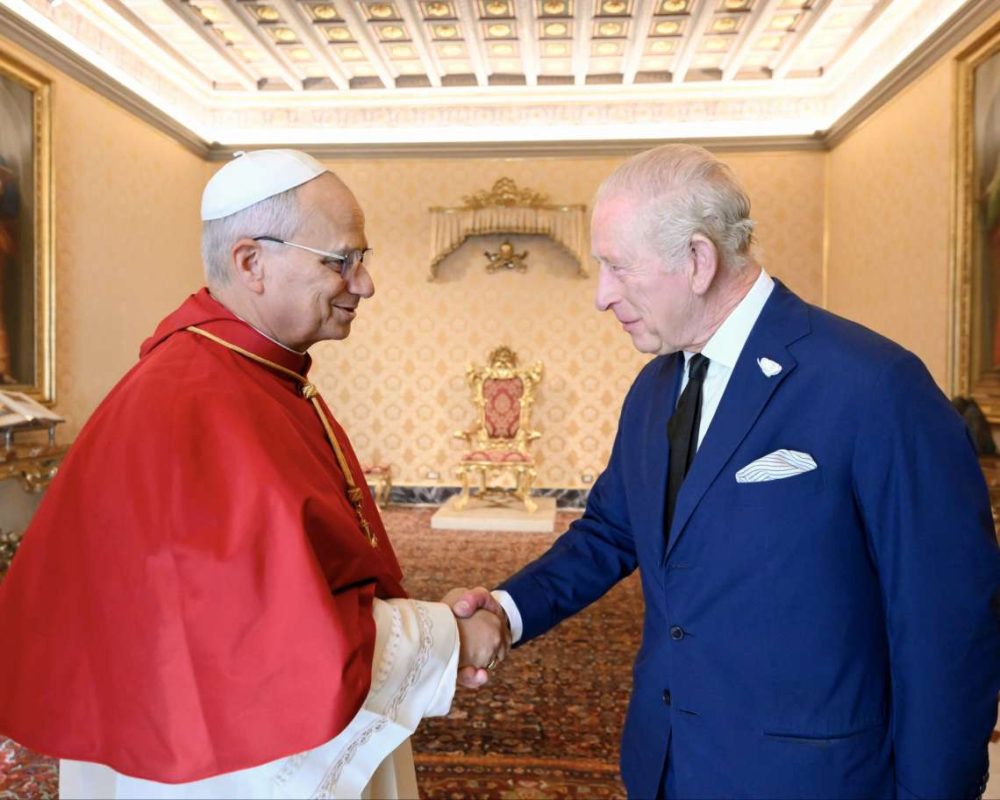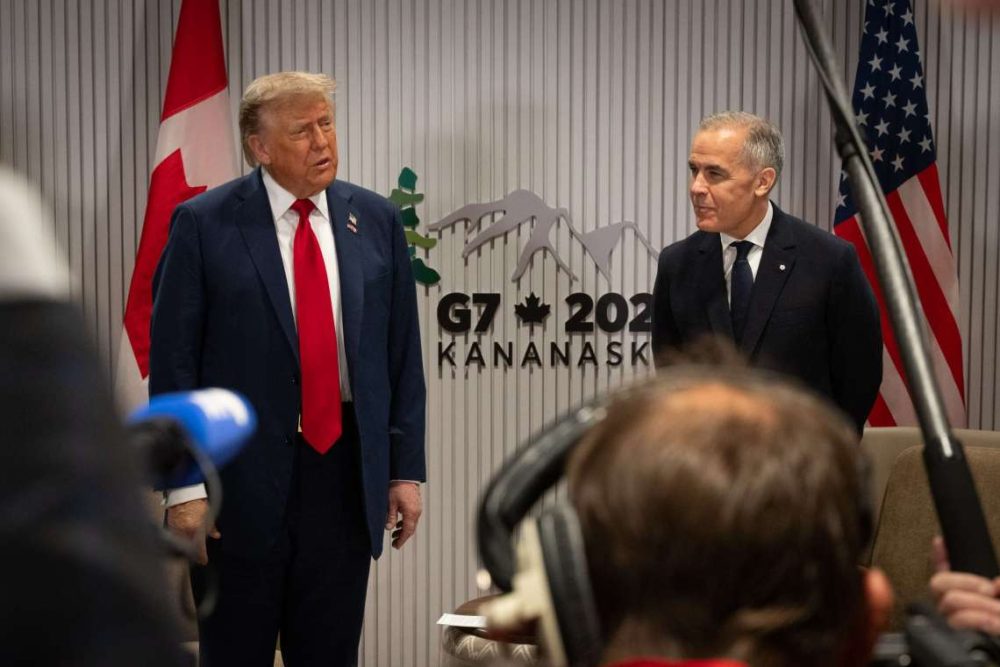UK and Germany deepen cyber and military collaboration under Trinity House Agreement to boost NATO security and defend Europe against emerging threats….reports Asian Lite News
The United Kingdom and Germany have stepped up their defence and cyber security partnership, marking a new phase of military cooperation between the two countries a year after the signing of the landmark Trinity House Agreement on Defence.
During a joint visit to RAF Lossiemouth in Scotland, Defence Secretary John Healey and his German counterpart Boris Pistorius commemorated the first anniversary of the agreement by announcing expanded collaboration in cyber operations and shared defensive activities. The visit underlined the increasingly close relationship between the two nations’ armed forces, with both ministers joining an operational flight aboard one of the Royal Air Force’s Poseidon P-8A maritime patrol aircraft.
The Poseidon, one of the RAF’s most advanced aircraft, is equipped to detect, identify, track, and respond to hostile ships and submarines, playing a crucial role in NATO’s efforts to secure the North Atlantic.
As part of the enhanced partnership, the two countries have launched the fifth “Trinity House Lighthouse” project, which will deepen cooperation between the UK’s new Cyber and Specialist Operations Command (CSOC) and Germany’s Cyber and Information Domain Service. The initiative will enable secure, real-time sharing of data, intelligence, and operational tools between both countries and with NATO allies.
The project also involves the development of a secure cloud network – a digital system designed to share information instantaneously while safeguarding against cyber attacks. The aim is to create a resilient digital backbone for allied defence operations, ensuring rapid information flow during potential crises or hybrid warfare incidents.
Both nations are also reinforcing their commitments to NATO through closer coordination to protect the alliance’s logistics and transport networks from growing cyber threats.
In the months ahead, the partnership will take a visible step forward when a P-8A aircraft from the German Navy visits RAF Lossiemouth for the first time. The aircraft will participate in joint operations with the RAF in the North Atlantic, focusing on countering Russian naval activity in the region.
The Trinity House Agreement, signed in October 2024, has also led to significant economic benefits for the UK. Since its launch, German defence firms have pledged more than £800 million of investment into the British defence sector over the next decade. The investments are expected to create around 600 skilled jobs across sites in London, Telford, Swindon, and Plymouth, furthering the Government’s Plan for Change and strengthening the role of defence as an engine of industrial growth.
A key element of this investment is the new Rheinmetall factory in Telford, which will see the UK resume production of artillery gun barrels for the first time in ten years. The facility will use British steel from Sheffield Forgemasters and is expected to create hundreds of jobs in the Midlands, revitalising a strategic manufacturing capability.
Three other German defence companies have also announced new commitments to the UK. Helsing will invest £350 million to establish a maritime glider drone factory in Plymouth, focused on Artificial Intelligence technologies. ARX Robotics will inject £45 million into a new facility producing uncrewed systems, creating 90 high-skilled jobs, while Stark plans to open a major drone manufacturing site in Wiltshire, its first base outside Germany, generating around 100 new jobs.
Speaking at RAF Lossiemouth, Defence Secretary John Healey said: “A year on from the Trinity House Agreement, the UK and Germany are working closer than ever to keep our two countries and Europe safe. Together we’re strengthening NATO, boosting our cyber defences, and ensuring our Armed Forces can operate side by side with ease – from patrolling the skies over Scotland to hunting Russian subs in the North Atlantic. This partnership is a cornerstone of European security, demonstrating unity and strength to our adversaries, and keeping us secure at home and strong abroad.”
German personnel have already twice joined the UK’s P-8A Poseidon aircraft for NATO’s Baltic Sentry missions, part of the alliance’s ongoing surveillance and deterrence efforts in northern Europe. The UK and Germany are also moving ahead with a joint procurement of advanced Sting Ray torpedoes, enhancing NATO’s collective underwater defence capability.
The Trinity House Agreement established a framework for deeper defence collaboration, spanning land, air, sea, space, and cyber domains. It aims to integrate the military planning, industrial capacity, and research strengths of both nations to build a more secure Europe amid increasing geopolitical tensions and Russian aggression.
The two defence industries are now cooperating more closely than ever before, with a focus on strengthening Europe’s defence manufacturing base. Work is already under way on the joint development of a Deep Precision Strike weapon with a range exceeding 2,000 kilometres. The weapon, designed for rapid response to emerging threats, represents one of the most ambitious joint projects under the agreement.
New industrial pacts will also enhance the production of bridge-building equipment for land operations, improving the mobility and resilience of NATO ground forces.
With the anniversary visit at RAF Lossiemouth, the UK and Germany have reaffirmed their commitment not only to each other’s security but to the broader defence of Europe and the NATO alliance. The growing integration of their cyber commands, defence industries, and operational capabilities underscores a shared recognition that modern security challenges—from cyber warfare to naval deterrence—require seamless international cooperation.
As Healey and Pistorius underscored during their visit, the Trinity House partnership is now a central pillar of Europe’s defence architecture, signalling both nations’ resolve to face future threats together—on land, at sea, in the air, and across the digital frontier.













